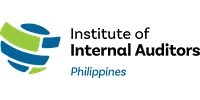Event Details
Focus and Features
Internal controls are necessary to effectively and efficiently carry out an organization's goals and objectives at all levels.
Designing and implementing an effective system of internal control can be challenging. Adaptability to rapidly changing business models, new technologies and globalization requires a system to be agile. An internal control system requires the use of judgment to monitor and assess its effectiveness and it must provide insight on the application of controls.
The primary focus of this course focus of this course is to provide you with an overview of internal controls.
Learning Objective(s):
- Identify the objectives, components, and principles of an effective internal control framework.
- Identify the roles and responsibilities each group in an organization has regarding internal controls.
- Identify the different types of controls and the appropriate application for each of them.
Through team exercises, group discussions, case studies and lectures, attendees will gain a foundation of knowledge that will allow Internal Auditors to define, identify, design and evaluate internal controls. A basic understanding of the roles of risks and internal controls will also be stressed, along with interpersonal and team-building skills.
What You Will Learn
I. Definition of Internal Controls
- Regulatory pressure towards reviewing the effectiveness of internal controls
- Primary objectives of internal controls
- Traditional definition of internal controls
- Internal control myths and realities
- Internal controls definition (based on COSO Framework)
II. The Committee of Sponsoring Organization (COSO) of the Treadway Commission Framework
- Definition and its key concepts
- The five components of internal controls
- Limitation of internal controls
- Roles and Responsibilities
- Case Studies about Internal Controls
III. Identifying Internal Controls
- Techniques to identify internal controls
- Control classifications (preventive, detective, directive and mitigating controls)
- Control activity types (manual, automated, specific, pervasive and monitoring)
- Concepts of key controls vs. other controls
- Concept of CAVR (Completeness, Accuracy, Validity and Restricted Access)
- Control Tools
- Case Studies about Identifying effective controls
IV. Designing Internal Controls
- International Professional Practices Framework (IPPF) standards about Internal Auditor responsibility on designing internal controls
- Identify well defined control objectives
- Identify risk to accomplishing objectives, given a situation.
- Determine the significance and likelihood of a risk.
- Identify possible ways to manage risk.
V. Evaluating Internal Controls
- Adequacy vs. Effectiveness
- Evaluation tools
o narratives
o internal control questionnaires
o flowcharts
o risk and control matrix
VI. Case Studies
VII. Seminar Conclusion
- Plan for Action
Who Should Attend:
This seminar is intended primarily for an audience of new internal auditors and non-auditors who want a basic understanding of what internal control is all about.
Number of CPE units: 3
Privacy Notice: We collect your personal information to register you in our training/ membership events and photos/videos will be taken for evidentiary purposes in relation to IIAP Seminars. We will use this information to provide services regarding your attendance and if you agree, to send you marketing information.
By giving us your personal information you consent to our use of it for the purposes described in this Privacy Notice.




